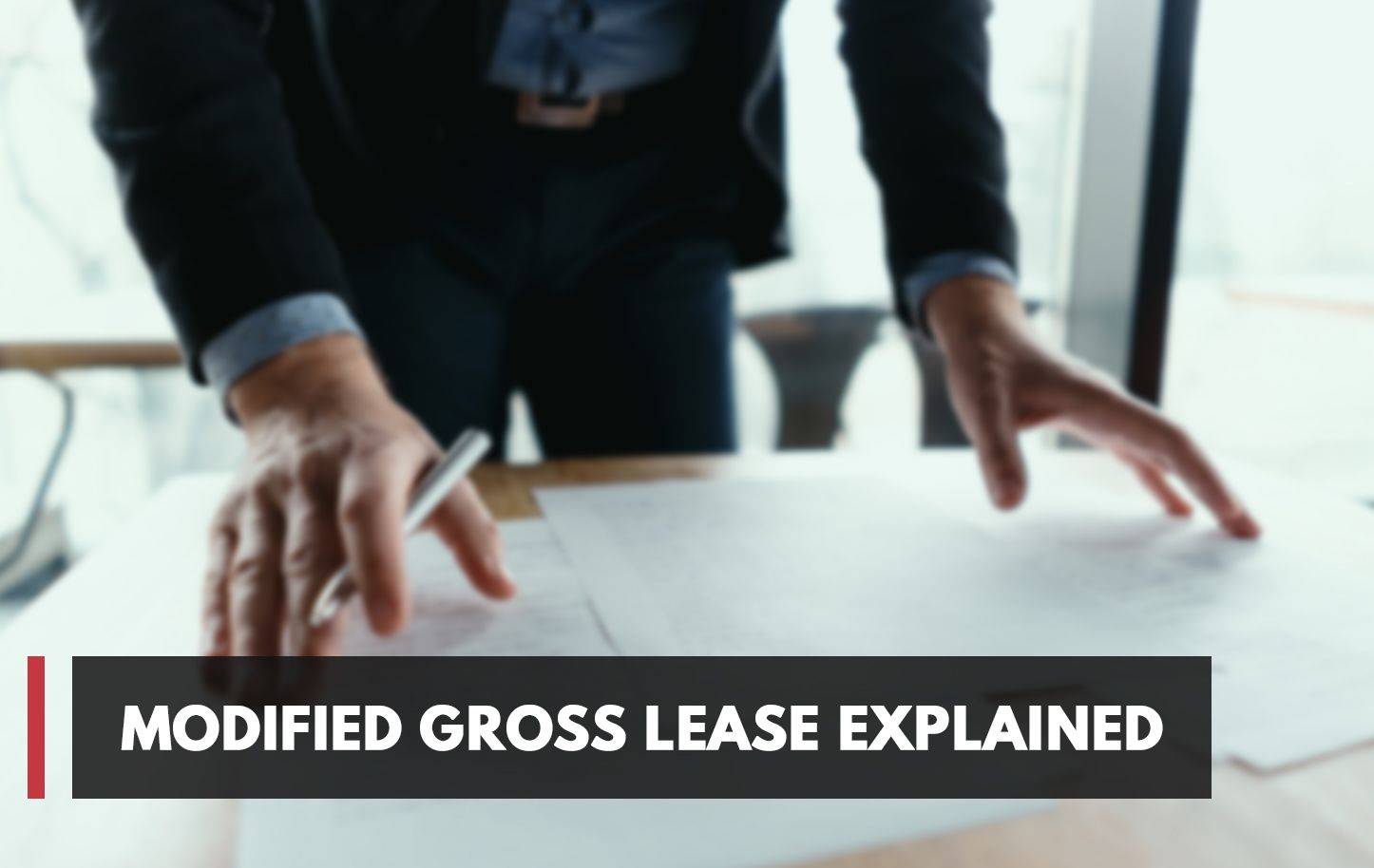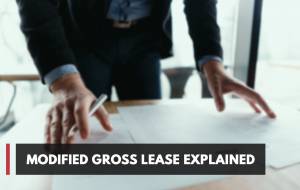
Modified Gross Lease Explained
Published At: Wed, 10/27/2021 - 04:28
As a property owner, someone who deals with properties, or someone tasked with finding a property to rent, you should know about a Modified Gross (MG) lease. Otherwise, it can be challenging to understand whether this type of agreement is right for you. So, when you're renting office space, you should research the type of lease that best fits your company's needs.
This article will help you understand everything about a modified gross lease so that you can decide if it's right for your business.
What is a Modified Gross Lease?
A modified gross lease is a commercial lease where the tenant agrees to pay for certain operating expenses - on top of rent. These expenses include a portion of certain taxes, property insurance, utilities, and common area maintenance costs (CAMs). In return, the landlord covers property taxes as well as building repairs and capital expenditures.
In this type of agreement, the landlord and tenant discuss how certain costs will be divided between them. In some cases, those expenses may be apportioned as part of an existing lease agreement, while others can negotiate a new arrangement.
How Does It Differ From Other Leasing Arrangements?
There are three types of leases:
- Gross
- Net
- Modified Gross
Typically, commercial leases are either gross or net leases.
A gross lease means that the landlord is responsible for all costs associated with occupying a commercial property, while the tenant only pays a flat rental amount. Many high-end office spaces offer gross leases.
On the other hand, a net lease means that besides the rent, the tenant is responsible for all costs associated with occupying a portion of a commercial property. Net leases are very popular among different types of commercial real estate.
A modified gross lease falls between a gross lease and a net lease. In this agreement, the tenant is responsible for specific expenses, like their pro rata portion of utility usage, while the landlord covers other costs associated, such as property taxes.
Advantages of Modified Gross Lease
A modified gross lease offers benefits over traditional net and gross leases for several reasons.
Less Expensive Option
For tenants, it's a less expensive option than traditional gross leases because the tenant will pay only their portion of expenses which will be deducted from rental income. The landlord can pass along some cost savings to the tenant by reducing rent or offering rate abatement which are free months of rent during the duration of a lease term.
A modified gross lease can be particularly advantageous when tenants have multiple locations, since this allows them to keep operating expenses across properties very low and more predictable.
Costs are More Predictable
It offers landlords predictable operating expenses and greater predictability with long-term cash flow forecasting. There are no unexpected repairs late in the tenancy term that could lead to broken lease terms.
In addition, tenants who operate multiple locations often find modified gross lease arrangements advantageous, as they allow them to keep tight control over costs while maintaining overall profitability across all properties.
Less Responsibility for Offices
Corporate buildings are fond of modified gross leases since it omits them from being responsible for the maintenance of the building, which can be a significant expense. The tenants can put that money into more productive uses, such as their expenses for business operations.
Moreover, since the tenant has fewer responsibilities for certain maintenance expenses, they're less likely to default on their payments. They don't have to come up with large amounts every month if something happens, such as property damage due to natural disasters.
Disadvantages of Modified Gross Lease
While there are many advantages to this type of lease agreement, potential tenants need to understand that there may also be some drawbacks.
Less Control on Building Appearance
Since the tenant is not responsible for repairs and capital expenditures, they do not control building improvements or upgrades. They will also likely need to get approval from management before making any changes since many corporate buildings require all tenants in the property to adhere to strict rules regarding exterior signage, floor coverings, etc.
If you're an office user, this might be an essential consideration for you, as it can affect your image with clients or customers visiting your business space regularly.
Fluctuation of Costs
Since the tenant is only responsible for their portion of operating expenses, there will be times when they experience a spike in costs. This could affect your financial plans since it could lead to a larger share of the expenses paid by you. For instance, seasonal changes can affect electricity or gas usage or a switch in janitorial services can affect these costs.
Similarly, this type of lease can put more pressure on tenants since their monthly payment does not automatically decrease as operating expenses rise or fall without prior approval from management.
Incomplete Risk Transfer
There is still a risk transfer because the landlord covers repairs and capital expenditures, whereas, in a net or gross arrangement, these costs would typically fall entirely on the tenant. However, if problems occur with building systems such as HVAC or plumbing, they will likely impact rental income since work cannot proceed until the disruption has been addressed.
When expenses such as doubling utility costs increase, the tenant will be required to cover this difference even though they're not in control of utility costs.
Who Should Consider This Type of Lease?
Modified gross leases are a good option for tenants who want to make the most out of their rental property. It allows them to keep expenses low and predictable, while also maintaining greater control over how their business expenses are spent.
It can benefit corporate buildings since it dramatically reduces capital expenditures and maintenance expenses, and increases predictability with rent payments due to limited tenant responsibilities under the lease agreement. However, if you want better aesthetics or have concerns about disruptions, this arrangement might not be ideal for your situation.
Therefore, it's essential to determine whether the benefits outweigh the costs before deciding how well the lease agreement can fit into your short-term and long-term plans.
Final Thoughts
A modified gross lease can be an excellent option for many businesses looking to make the most out of their rental property. However, it also comes with drawbacks. Therefore, ensure that you research all the details before signing this type of agreement.


